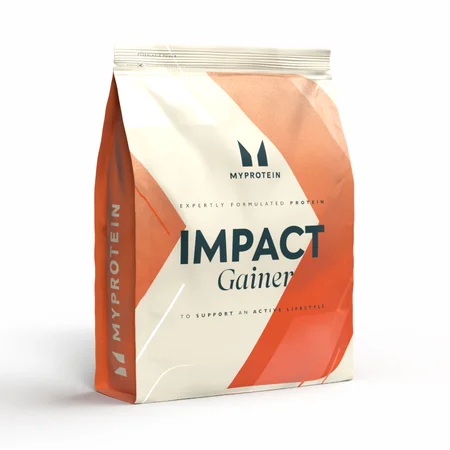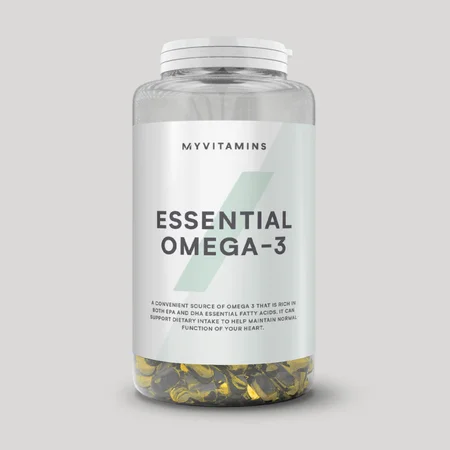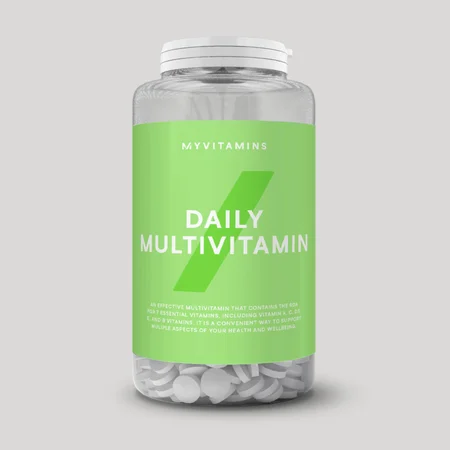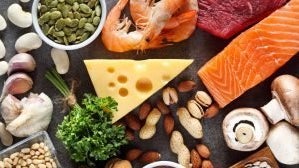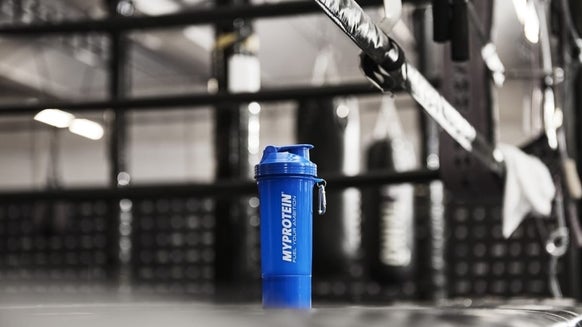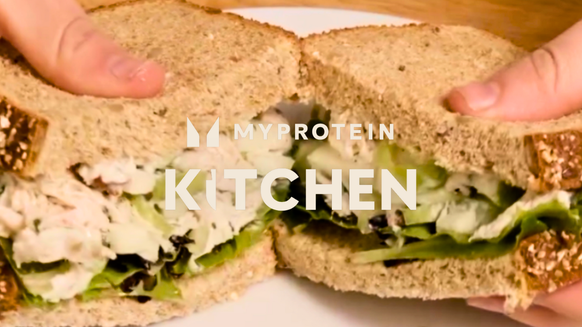
Bulking doesn’t have to be rocket science. There are plenty of ways to go about the bulk – and plenty of supplements that will help you get there too. Knowing which ones are going to be most effective for you can be the most difficult bit when choosing your supplements for bulking. Luckily for you, we’ve put in the hard work, so that you can leave that to your gym workouts.
First off, getting your diet right is key to bulking right. Good nutrition and a calorie surplus will see you making a clean bulk and limit the fat. Also, although eating right will take you a long way, training right will have you building up that muscle too.
If you feel like you’ve got your diet and training spot on, but still are a ways off your goals, then it’s time to start with some supplements. Here’s a list of what we’ve covered in this article, so that you can discover the best supplements for your bulk:
New to bulking? Let Richie fill you in...1. Mass Gainers
In order to gain weight, you need to consume more calories than you’re burning in a day. For some, this is relatively easy and packing in a few high-carb, high-fat meals is sometimes enough to gain those extra pounds. For others however, gaining weight from food alone can be a hard task.1
A convenient way to get in those extra calories on top of your normal diet is a weight gainer shake. With around 300-400 calories per shake, weight gainers are the perfect quick calories which are typically composed of high-quality protein, essential fatty acids, and a blend of carbohydrates.
For example, our Weight Gainer Blend contains a total of 365 calories, 27g of protein, and 52g of carbohydrate per shake. This will boost your calorie intake with quality nutrients, as well as aiding recovery after a tough workout to help build muscle.
Difference Between Weight Gainer Protein & Regular Protein
Like normal protein shakes, weight gainer shakes won’t add an inch to your chest or add size to your legs overnight, but over time, they can help you get to those goals. The difference between weight gainer shakes and regular protein shakes comes down to the nutritional values of each one.
In a normal protein shake, you can usually expect to consume 100-150 calories and get 20-30g of protein. With weight gainers, however, there are many more options when it comes to reaching your goals.
For somebody looking to get a few extra calories to bridge the gap, there are shakes that will have 400-800 calories per serving. On the other hand, for people who find it extremely hard to gain weight, there are shakes that will have 1000+ calories per serving to help reach those 4000-5000 calorie goals for the day.

What’s in a Gainer Shake?
Shakes designed for weight gain usually consist of protein, carbohydrates, and sometimes fats which can make them extremely effective. For example, in addition to replacing your normal protein shakes, weight gainers will have good slow and fast-acting carbohydrates – perfect for after a workout to replace glycogen stores.1 Weight gainers also contain sources of fat, which help boost total calorie intake and support the creation of the hormones that impact our health.2 Calorie surplus is key to seeing muscle growth.
Some gainers will even have creatine in them too, which works especially well with the quick-digesting carbohydrates in the shake because they aid in the absorption of creatine into the body.

2. Omega-3 and Omega-6
There are two types of fatty acids that are essential to a healthy body. Omega-3 and Omega-6 can’t be made by the body, so we have to make sure that they’re consumed as a part of our diet.2 Not only have they been linked to minimizing post-workout soreness, but some evidence has shown a potential for omega-3 supplementation to enhance fat oxidation.3-4
You may be wondering why this supplement is important for gaining mass, but ensuring you’re performing at your peak means that you’ll be able to reach your goals. Also, making lean gains and preventing fat gain will mean you preserve more of your definition as you gain mass.
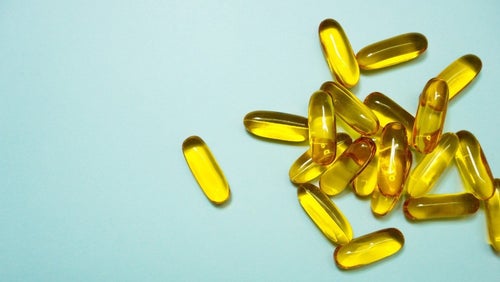
What is Omega-3? | Benefits, Side Effects & Dosage
This is what makes omega-3 so good for us, and where you can get it....
3. ZMA
ZMA is a trademarked combination of zinc, magnesium, vitamin B6, and aspartate. One study has claimed that ZMA could boost testosterone, strength, muscle mass, and recovery time after exercise.5 Some have theorized that this is due to the supplement correcting a deficiency in zinc and magnesium that can lead to reduced testosterone levels in the body.6
If you think your diet could be lacking in zinc and magnesium, or that you suffer from reduced testosterone levels, then you might want to look into supplementing with ZMA to see a difference in your muscle mass.7

ZMA Benefits Dosage & Side Effects
Can this supplement give your muscles and your immune system a boost?...
4. Creatine
Creatine is a supplement that’s already naturally found in the body. It’s stored in muscle as creatine-phosphate and used to produce energy (ATP) during short, intensive bursts of exercise. Taking an extra creatine supplement can increase the amount stored in your muscles, which improves anaerobic performance. That means that you can train all-out for longer, and recover between sets quicker.6
Creatine is a must-have supplement when it comes to bulking. It’s something that’s often present in bulking supplements, however supplementing with a pure form of micronized creatine monohydrate is still recommended as you can control how much you’re taking.
This is one of the most frequently and deeply studied sports supplements. Some research has shown that creatine can quickly increase lean body mass, however this is mainly down to the water retention it causes. The real muscle gain comes from the fact that creatine can increase your performance in the gym by allowing you to squeeze out extra reps, or lift heavier. This compounds into long-term muscle gain, making it a must-have on your list for bulking.8
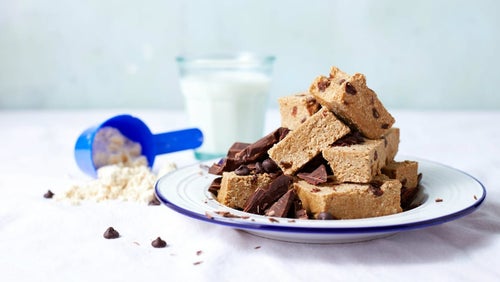
The Creatine Loading Phase | Is It The Best Way To Gain Muscle?
Should you try a loading phase?...
5. Whey Protein Powder
If you’re getting enough calories from your diet and don’t need gainer shakes, then ensuring that you take on board enough protein post-workout for muscle repair and maintenance is key. Whey protein shakes come in many forms and flavors, but the best are rigorously tested and come from high-quality sources.9
Our Impact Whey Protein comes from the same cows that produce your milk and cheese, which is the spray-dried to produce all-natural nutrition. It’s also tested for quality and purity. There are 15 flavors to choose from, so you’re sure to find a few that you love.

Best Whey Protein | The Difference Between Impact Whey & Impact Whey Isolate?
It's a battle of the best....
A protein shake is a convenient way to ensure you’re getting enough protein, alongside a balanced diet. It’s the most commonly used supplement in the fitness industry, and for good reason. One serving of whey protein can have the equivalent protein content of a large chicken breast. In addition, the research indisputably shows that a combination of weight training and whey supplementation leads to an increase in lean body mass.10
6. BCAAs
Branched chain amino acids (BCAAs) is the name given to three essential amino acids that contain a side chain, hence the name.11 They are leucine, isoleucine, and valine. Leucine is the key player, as it’s the anabolic trigger that kick starts muscle protein synthesis, while isoleucine and valine are added to the mix to offset the decreased blood concentration caused by leucine.12
The great thing with BCAAs is that they can be taken before, during, and after your workout – basically, whenever suits you best. Supplementing with BCAAs during intense exercise may reduce protein degradation, leading to greater muscle mass gain – so sip away as you work out.1 It’s worth noting that you can get BCAAs from plenty of protein food sources too. However, BCAAs compete with other amino acids for the transport system around the body, so consuming BCAAs on their own may be more effective than consuming protein that contains BCAAs and other amino acids.13

What Are BCAAs & Their Benefits?
How could BCAAs help you reach your goals?...
7. Carbohydrates
Evidence shows that if you’re following a general fitness program, then you should, typically, be meeting your carbohydrate needs already. However, as soon as you begin to increase your training sessions during your bulk, you might find it more difficult to sustain a healthy level.
As carbohydrates are the body’s primary source of energy, it’s essential that you’re getting enough to fuel your day. They also control the release of insulin, which shuttles the nutrients you consume into the muscle cells – this means maximizing muscle growth.6
There are so many options when it comes to supplementing with carbohydrates, which is mainly depending on whether you want fast-release energy, slow-release energy, or both. You can add instant oats to your shakes for a source of slow-release carbohydrates. For fast release, perhaps after a workout, you may want to consider fast-acting carbs such as waxy corn, maltodextrin, or dextrose.1

Why Carbs Aren't The Enemy | Different Types of Carbohydrates & Benefits
It's time to make friends with carbs......
8. Tribulus
Tribulus is a natural plant which is thought to increase testosterone levels.14 It’s been used in bodybuilding since the 1970s, when Bulgarian powerlifters popularized the supplement by attributing their success to the herbal extract.15
It’s been speculated that tribulus naturally increases luteinizing hormone levels, leading to increased testosterone production. This, in turn, is associated with increased strength and muscle mass. More research is required to record its effectiveness for building muscle mass, but you could always ask the Bulgarian powerlifters, or give it a try for yourself.16
9. Multivitamins
Vitamins are essential compounds that take part in important roles all around the body – from metabolism regulation to protecting cells from damage. While there’s no evidence to suggest that taking high doses of vitamins will improve your performance or muscle building advantage, vitamin deficiencies can potentially compromise your gains.1
Of course, you should get what vitamins you can from eating a balanced diet. However, some research has shown that even if you eat really well, you can still miss out on some vitamins. To avoid this, you can invest in a good multivitamin supplement for a convenient way to make sure you’re getting all the vits you need to make gains.17
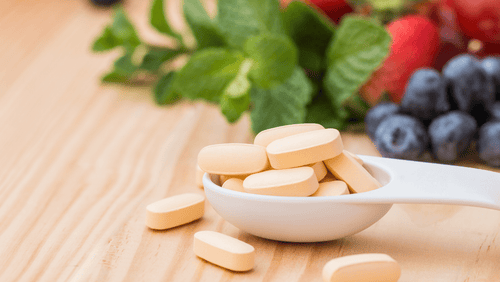
Do Multivitamins Actually Work?
How effective is this vitamin all-rounder?...
Take Home Message
These supplements are a great starting off point for making serious gains, but don’t expect it to happen overnight. Bulking, like any fitness goal, takes graft in the gym and in the kitchen. Make sure that your diet is supporting your training and use these supplements to bridge the gap and boost your results.
READ THESE NEXT:

1 Kreider, R. B., Wilborn, C. D., Taylor, L., Campbell, B., Almada, A. L., Collins, R., … & Kerksick, C. M. (2010). ISSN exercise & sport nutrition review: research & recommendations. Journal of the International Society of Sports Nutrition, 7(1), 7.
2 Kaur, N., Chugh, V., & Gupta, A. K. (2014). Essential fatty acids as functional components of foods-a review. Journal of food science and technology, 51(10), 2289-2303.
3 Buckley, J. D., & Howe, P. R. (2010). Long-chain omega-3 polyunsaturated fatty acids may be beneficial for reducing obesity—a review. Nutrients, 2(12), 1212-1230.
4 Jouris, K. B., McDaniel, J. L., & Weiss, E. P. (2011). The effect of omega-3 fatty acid supplementation on the inflammatory response to eccentric strength exercise. Journal of sports science & medicine, 10(3), 432.
5 Brilla, L. R., & Conte, V. (2000). Effects of a Novel Zinc-Magnesium Formulation on Hormones and Strength. Journal of Exercise Physiology Online, 3(4).
7 Chang, C. S., Choi, J. B., Kim, H. J., & Park, S. B. (2011). Correlation between serum testosterone level and concentrations of copper and zinc in hair tissue. Biological trace element research, 144(1-3), 264-271.
8 Cooper, R., Naclerio, F., Allgrove, J., & Jimenez, A. (2012). Creatine supplementation with specific view to exercise/sports performance: an update. Journal of the International Society of Sports Nutrition, 9(1), 33.
9 Hoffman, J. R., & Falvo, M. J. (2004). Protein–which is best?. Journal of sports science & medicine, 3(3), 118.
10 Devries, M. C., & Phillips, S. M. (2015). Supplemental protein in support of muscle mass and health: advantage whey. Journal of food science, 80(S1), A8-A15.
11 Yoshizawa, F. (2012). New therapeutic strategy for amino acid medicine: notable functions of branched chain amino acids as biological regulators. Journal of pharmacological sciences, 118(2), 149-155.
12 Wolfe, R. R. (2017). Branched-chain amino acids and muscle protein synthesis in humans: myth or reality?. Journal of the International Society of Sports Nutrition, 14(1), 30.
13 Shah, S. H., Crosslin, D. R., Haynes, C. S., Nelson, S., Turer, C. B., Stevens, R. D., … & Gorroochurn, P. (2012). Branched-chain amino acid levels are associated with improvement in insulin resistance with weight loss. Diabetologia, 55(2), 321-330.
14 Qureshi, A., Naughton, D. P., & Petroczi, A. (2014). A systematic review on the herbal extract Tribulus terrestris and the roots of its putative aphrodisiac and performance enhancing effect. Journal of dietary supplements, 11(1), 64-79.
15 Pokrywka, A., Obmiński, Z., Malczewska-Lenczowska, J., Fijatek, Z., Turek-Lepa, E., & Grucza, R. (2014). Insights into supplements with Tribulus terrestris used by athletes. Journal of human kinetics, 41(1), 99-105.
16 Antonio, J., Uelmen, J., Rodriguez, R., & Earnest, C. (2000). The effects of Tribulus terrestris on body composition and exercise performance in resistance-trained males. International journal of sport nutrition and exercise metabolism, 10(2), 208-215.
17 Biesalski, H. K., & Tinz, J. (2017). Multivitamin/mineral supplements: Rationale and safety–A systematic review. Nutrition, 33, 76-82.
